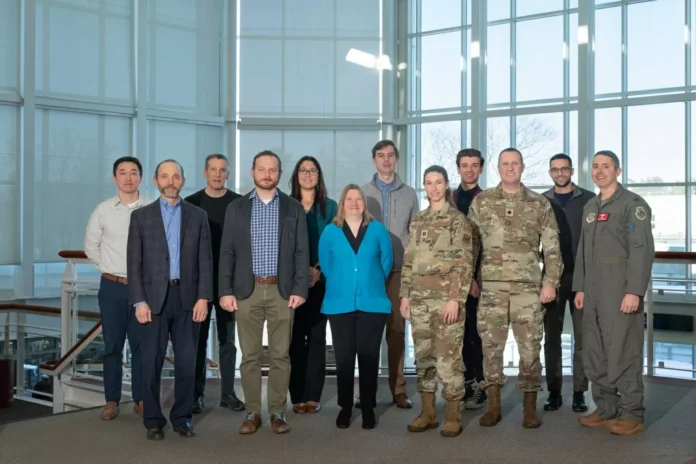Lincoln Laboratory is a world-renowned research and development center that has been at the forefront of technological innovation for over 70 years. Located in Lexington, Massachusetts, this laboratory has been instrumental in developing cutting-edge technologies for the United States Department of Defense and other government agencies. And now, the laboratory is taking another step towards revolutionizing global transport logistics.
In a recent development, Lincoln Laboratory has announced that it will be transitioning its advanced tools and technologies to the 618th Air Operations Center. This move is aimed at streamlining global transport logistics and improving the efficiency of air operations. The 618th Air Operations Center, located at Scott Air Force Base in Illinois, is responsible for planning and executing global air mobility operations for the United States Air Force. With the addition of Lincoln Laboratory’s tools, the center will have access to state-of-the-art technologies that will enhance its capabilities and make it a leader in the field of global transport logistics.
This transition is a result of a collaboration between Lincoln Laboratory and the 618th Air Operations Center, with the goal of improving the efficiency and effectiveness of global air transport. The laboratory’s advanced tools, which have been developed through years of research and experimentation, will provide the center with real-time data and analysis, enabling it to make informed decisions and respond quickly to changing situations. This will not only improve the overall performance of the center but also have a significant impact on the success of global transport operations.
One of the key tools that will be transferred to the 618th Air Operations Center is the Advanced Global Mobility System (AGMS). This system, developed by Lincoln Laboratory, is a comprehensive software suite that provides real-time situational awareness and decision support for global air transport operations. It integrates data from multiple sources, including weather, air traffic, and mission requirements, to provide a complete picture of the global air transport environment. With the addition of AGMS, the 618th Air Operations Center will have a powerful tool at its disposal to plan and execute air transport operations with precision and efficiency.
Another significant technology that will be transferred to the center is the Automated Aerial Refueling (AAR) system. This system, also developed by Lincoln Laboratory, automates the process of aerial refueling, reducing the risk of human error and increasing the safety and efficiency of air-to-air refueling operations. With the AAR system, the 618th Air Operations Center will be able to manage and monitor aerial refueling operations in real-time, ensuring that they are carried out smoothly and without any delays.
The transition of these advanced tools to the 618th Air Operations Center is a testament to the cutting-edge research and development being carried out at Lincoln Laboratory. The laboratory has always been at the forefront of developing innovative solutions for the United States military, and this move is yet another example of its commitment to advancing global air transport logistics. The tools being transferred to the center have been rigorously tested and proven to be effective in real-world scenarios, making them a valuable asset for the 618th Air Operations Center.
This transition also highlights the importance of collaboration and partnership between different branches of the military. By working together, Lincoln Laboratory and the 618th Air Operations Center are not only enhancing the capabilities of the center but also strengthening the overall air transport operations of the United States Air Force. This partnership will pave the way for future collaborations and advancements in the field of global transport logistics.
In conclusion, the transition of advanced tools from Lincoln Laboratory to the 618th Air Operations Center marks a significant milestone in the field of global transport logistics. With these tools, the center will be able to streamline its operations and improve its performance, ultimately leading to a more efficient and effective global air transport system. This move is a testament to the dedication and expertise of the team at Lincoln Laboratory and their commitment to advancing technology for the betterment of the United States military. We can only imagine the positive impact this transition will have on global transport logistics and look forward to seeing the results in the near future.

